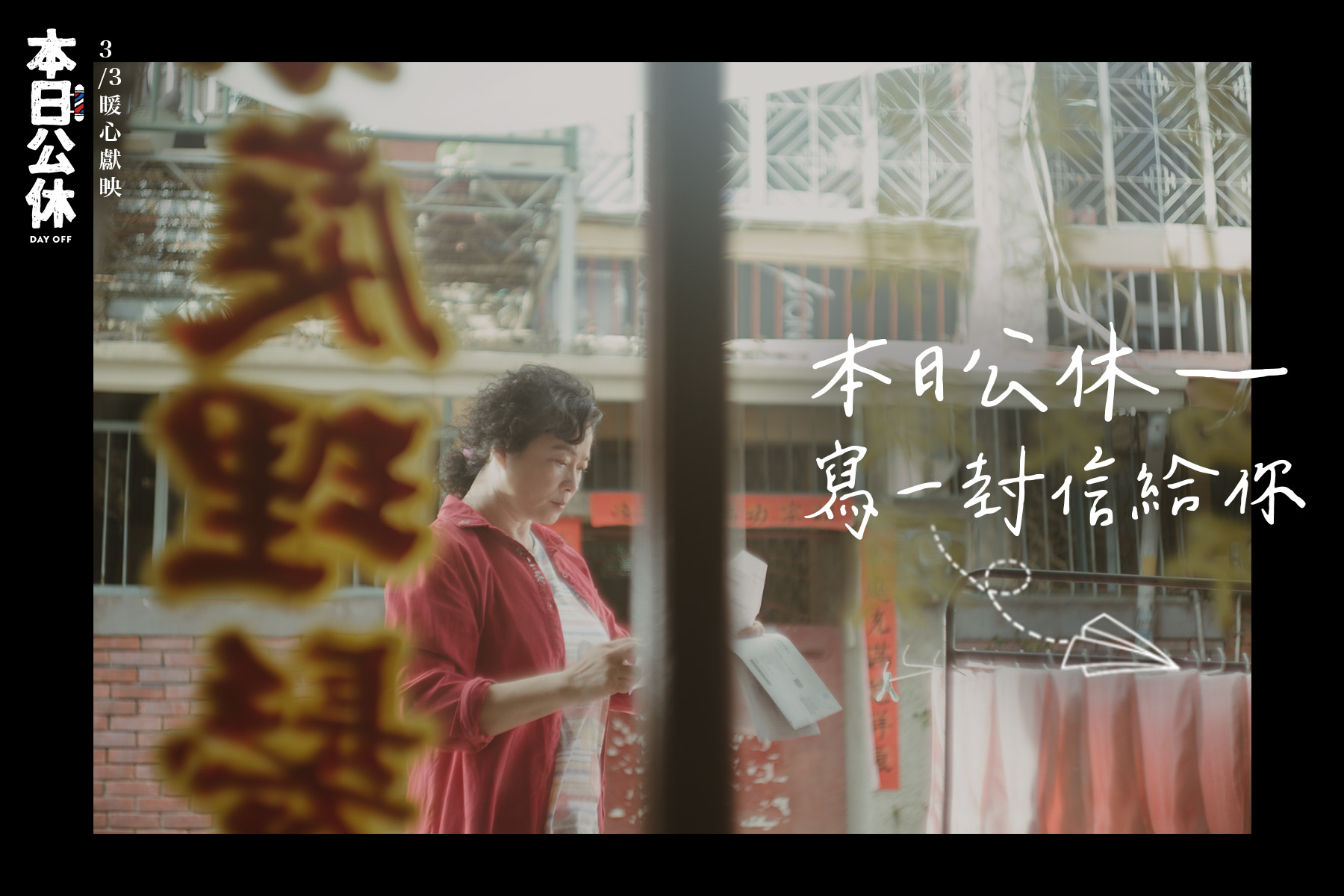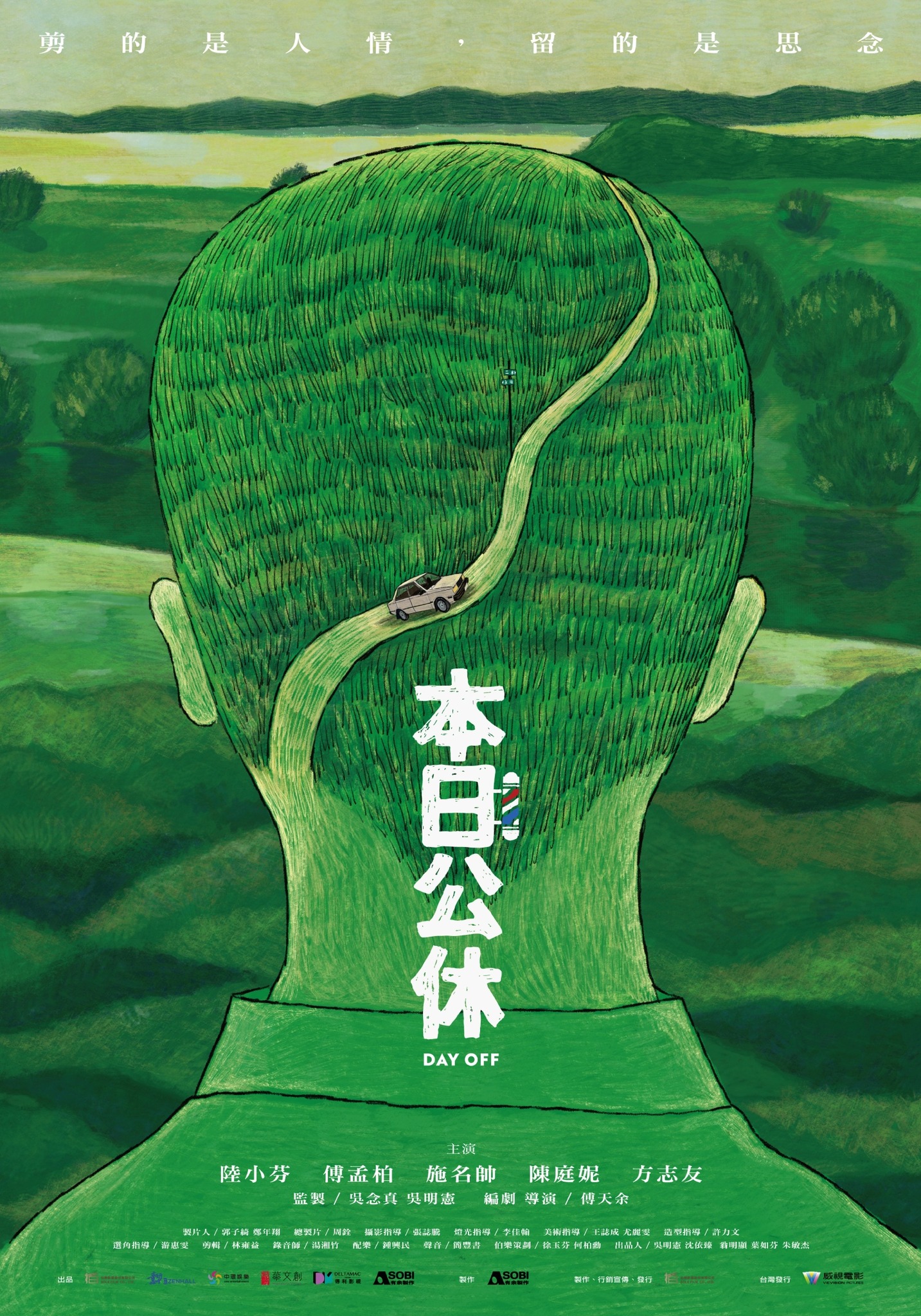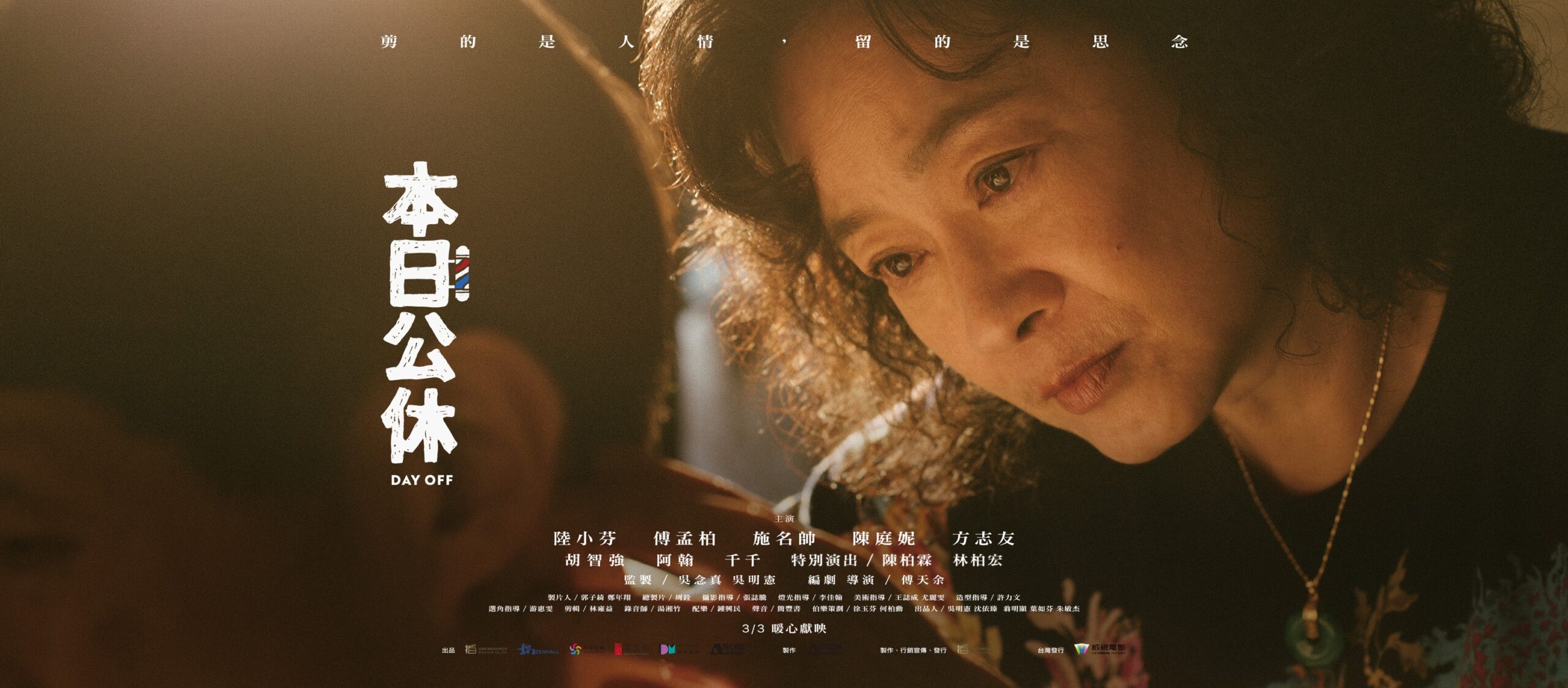by Brian Hioe
語言:
English
Photo Credit: Day Off/Facebook
DAY OFF (本日公休), which has won accolades for lead actress Lu Hsiao-fen, proves a heartfelt depiction of the relationship between a mother and her children during a time of transition.
In particular, Day Off follows traditional hairdresser A-Rui, played by Lu, and her children. Two of her children have followed her into the hairdressing businesses, though in a modernized way. One daughter is a stylist that works on movie productions, while the other works in a modern hair salon but is considering jumping ship to run a 100 NT quick haircut salon. A son flounders at home, with various unsuccessful business schemes including running a crane claw machine store or investing in solar power. In the meantime, the family’s former son-in-law, an auto mechanic that was previously married to one of A-Rui’s daughters, remains close to his ex-wife and is still a de facto member of the family.

Photo credit: Day Off/Facebook
It is unmistakably Lu’s performance as A-Rui that carries the film. Other films depicting the elderly in recent memory have sometimes struggled when it came to naturalistically depicting the elderly; instead, depictions of the elderly have generally avoided showing the elderly as younger people might see them–as nagging, fussy, or old-fashioned. But Lu’s performance manages to capture A-Rui as a character that her children, in fact, struggle with sometimes while still making her into a highly sympathetic character.
If Lu’s performance is a standout, other characters do not fare as well. A-Rui’s former son-in-law and his ex-wife are the characters that are the most fleshed out among A-Rui’s extended family, with her son ultimately being a criminally underdeveloped character in spite of actor Shih Ming-shuai’s range in other films. A plotline involving A-Rui’s other daughter being cheated on by her boyfriend is unsatisfyingly resolved and she gradually recedes from the plot as the movie goes on, though the parallels between her occupation as a stylist offer interesting parallels with A-Rui’s profession as an old-fashioned hairdresser.
In some ways, the film proves somewhat atavistic and traditionalist in its thematics. A-Rui is depicted as the hub of a small community of elderly customers, mostly men, at her hair salon. This is contrasted to the customer-client relationship of modern hair salons, in which clients shift between hairdressers if they feel dissatisfied, and in which modern hair salons are suggested to be superficial. A-Rui’s former son-in-law, the car mechanic, is depicted as more aligned with her in that he prioritizes relations with his customers even if they defer payments claiming financial need, and because of his pride in the craftsmanship of his work.
Even though the film suggests that the importance that A-Rui’s children place on moving up in the world is due to the harsher economic conditions facing young people, the movie still seems to be less sympathetic. Likewise, the movie does not suggest any middle ground between the two positions, as this juxtaposition comes off as an absolute distinction. Perhaps in this way, the film romanticizes something of Taiwan’s past.

Photo credit: Day Off/Facebook
The film finally comes to a head when A-Rui sets off on a trip to visit and cut the hair of an old customer of hers, even though this will involve driving from Taichung to Changhua–something that is more difficult for her because of her knees. Ultimately, this trip is one of the most well-executed parts of the film, with scenes of the car looming large in the frame to create tension. A-Rui’s climactic haircut with her old customer then proves to be a powerful meditation on mortality.
But while the movie perhaps would have been better served ending there, it continues onward for several more beats. This proves a bit awkward, as the film is ultimately unable to resolve all of its plot threads neatly, when the movie could have been better served with a cleaner and more precise ending.
Though not perfect, the movie is probably worth watching for Lu’s performance alone. Lu does not dominate the film, as the other characters still have plenty of time on camera. But it is clearly Lu’s performance that holds the film together, at its emotional core. And though the other parts of the film could have worked better, the film still proves quite strong overall.



